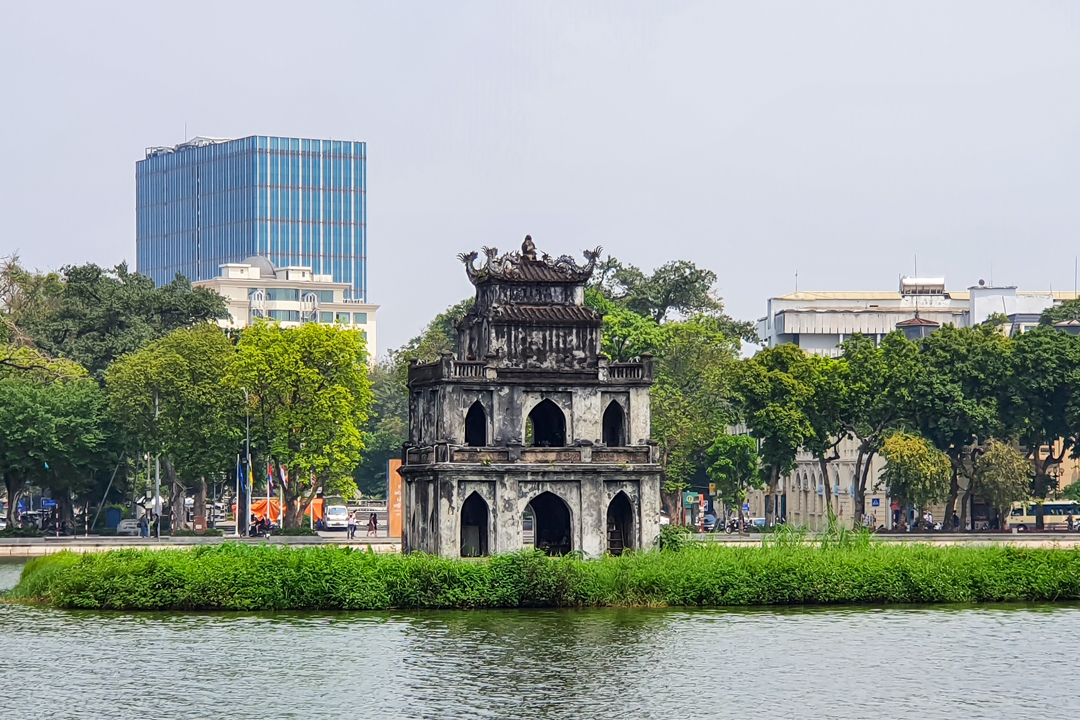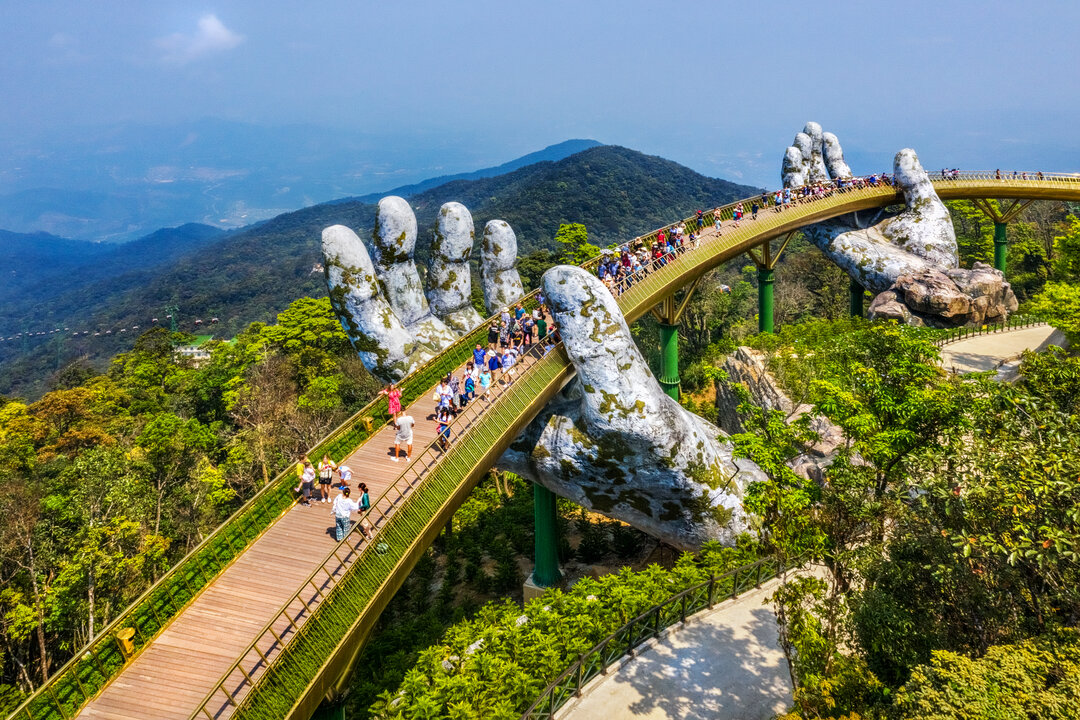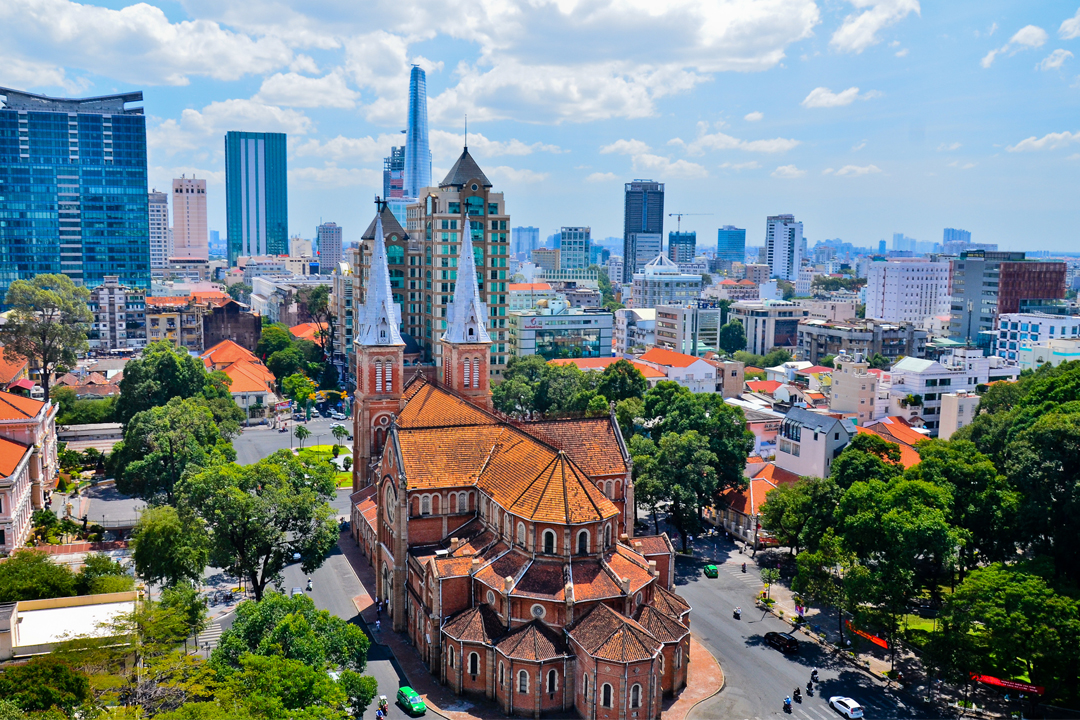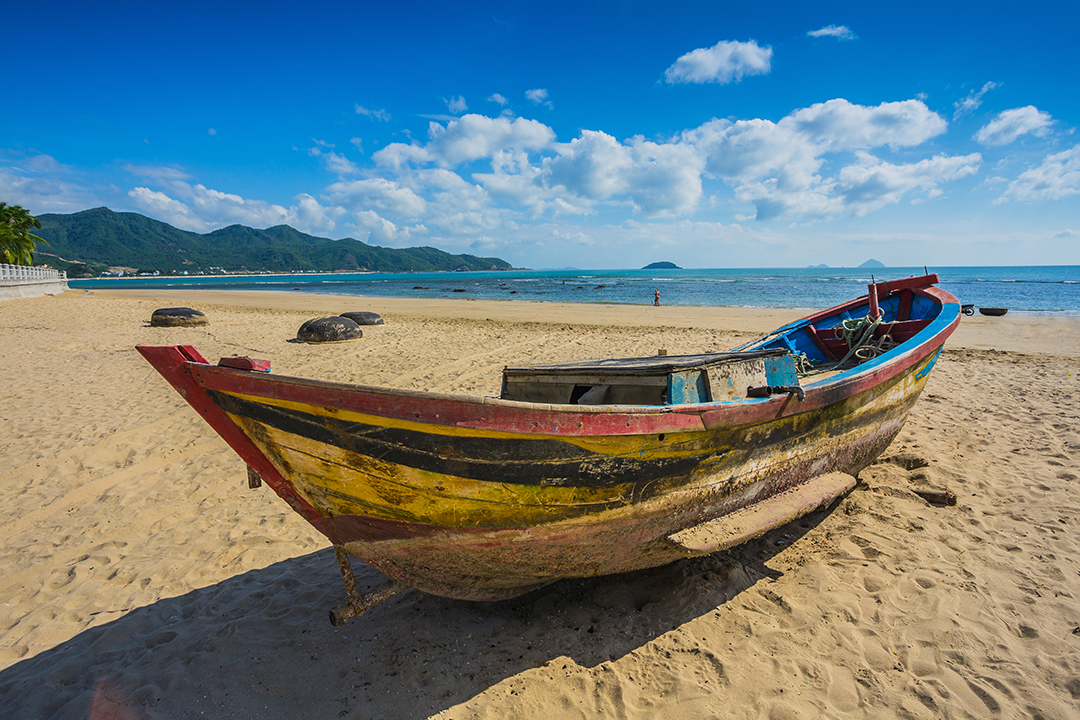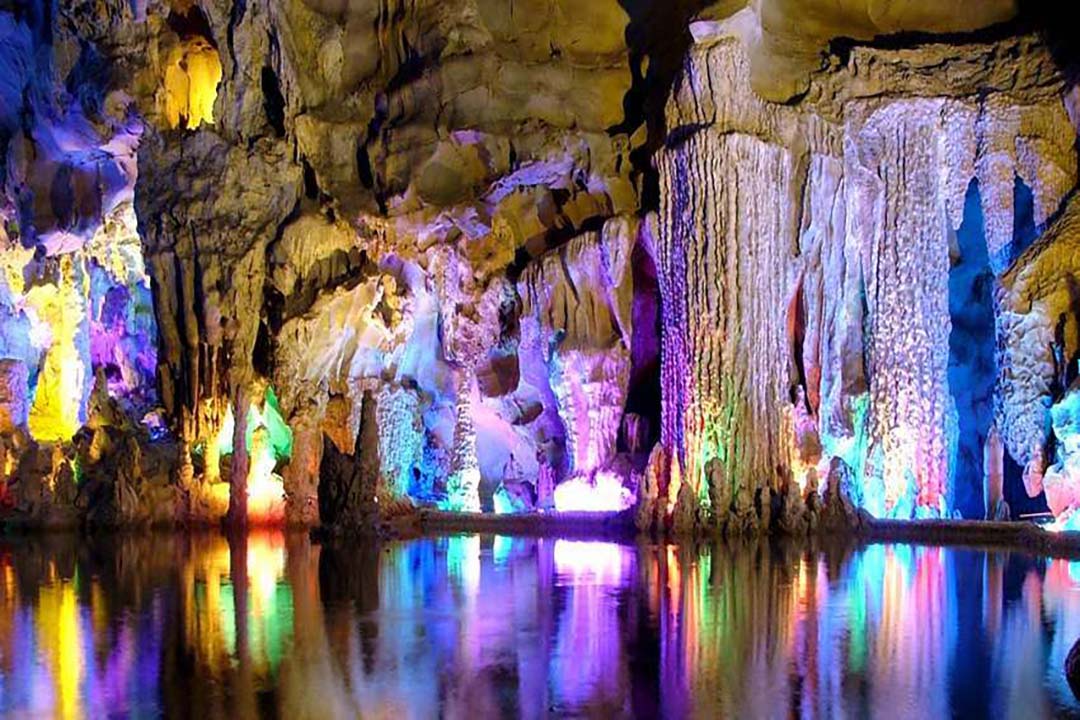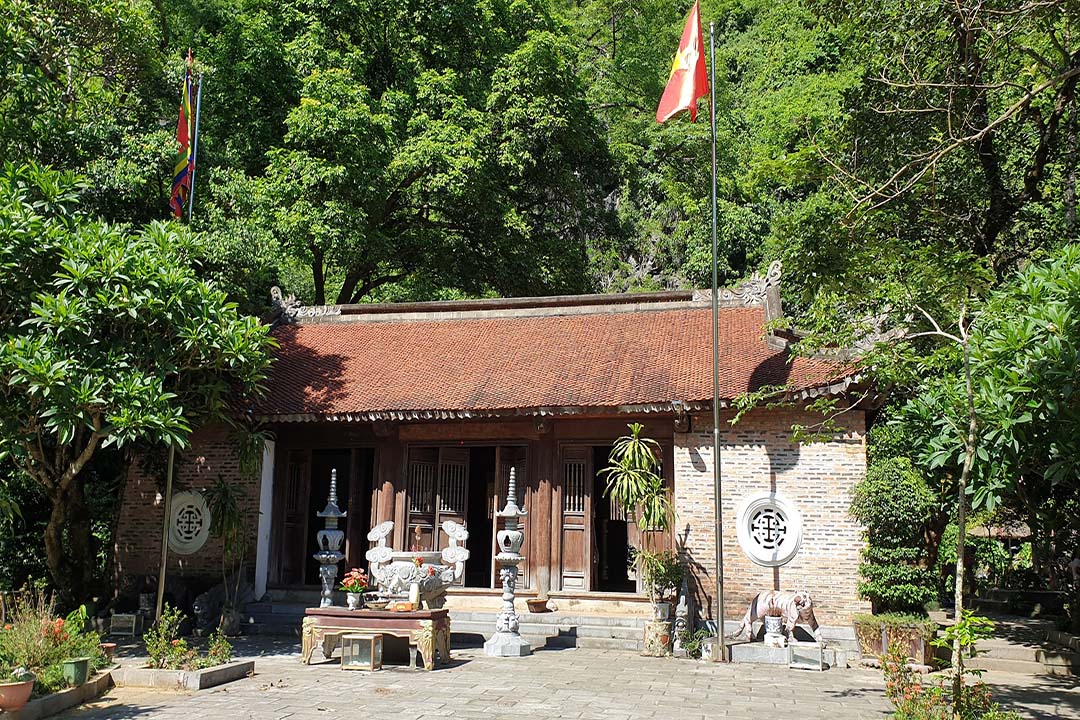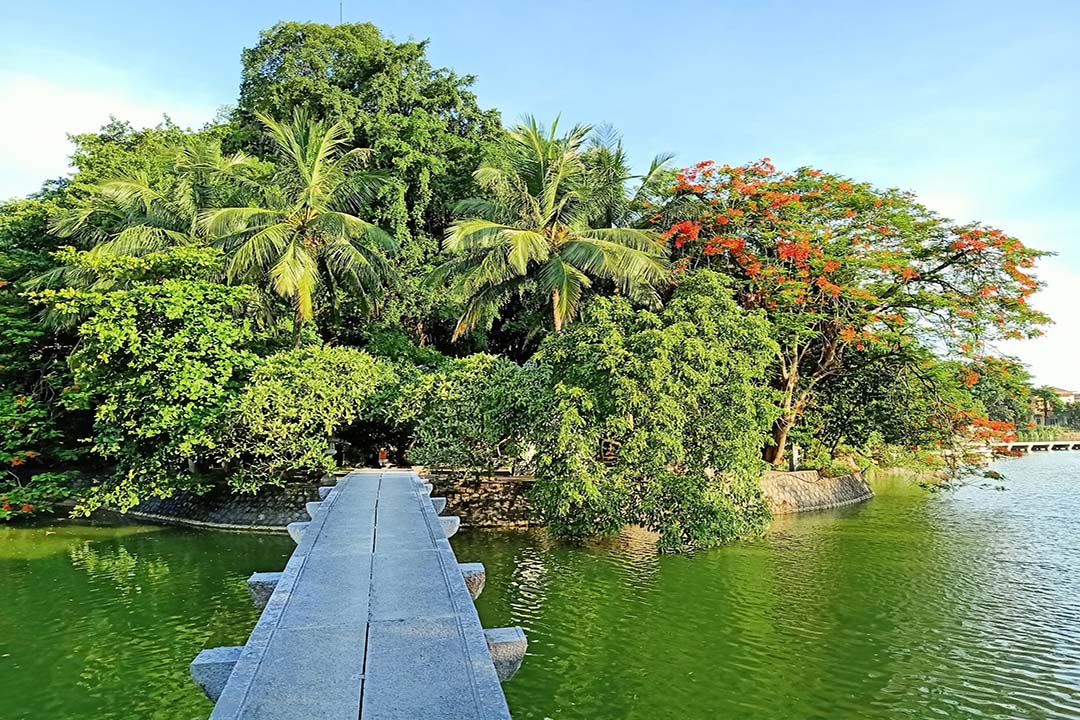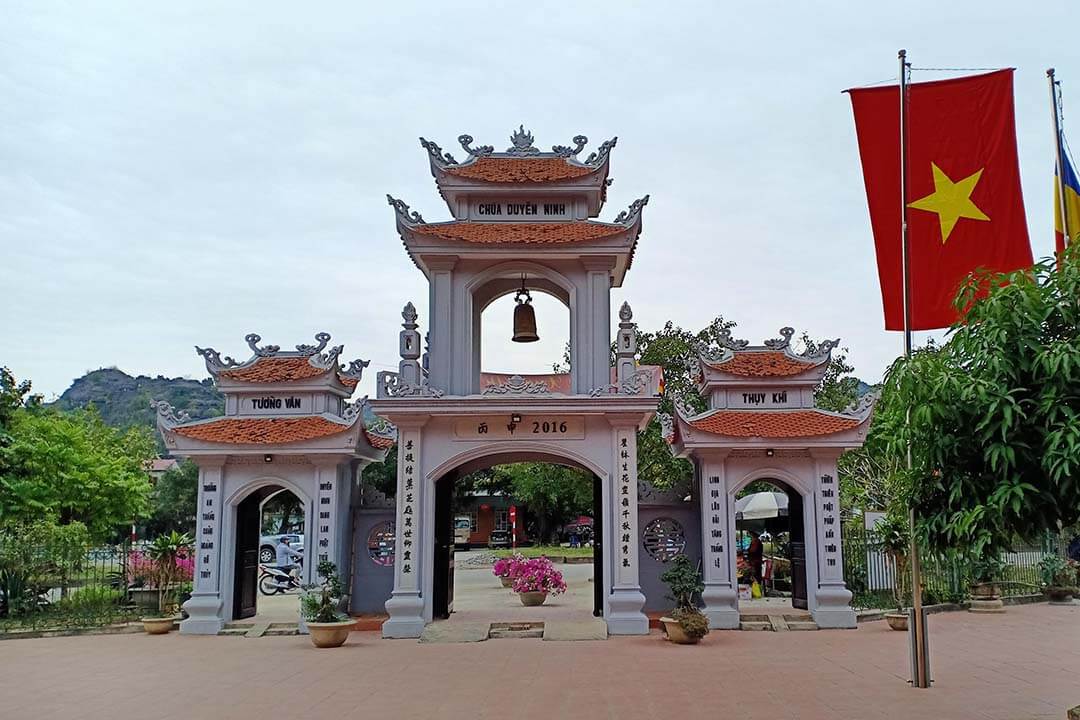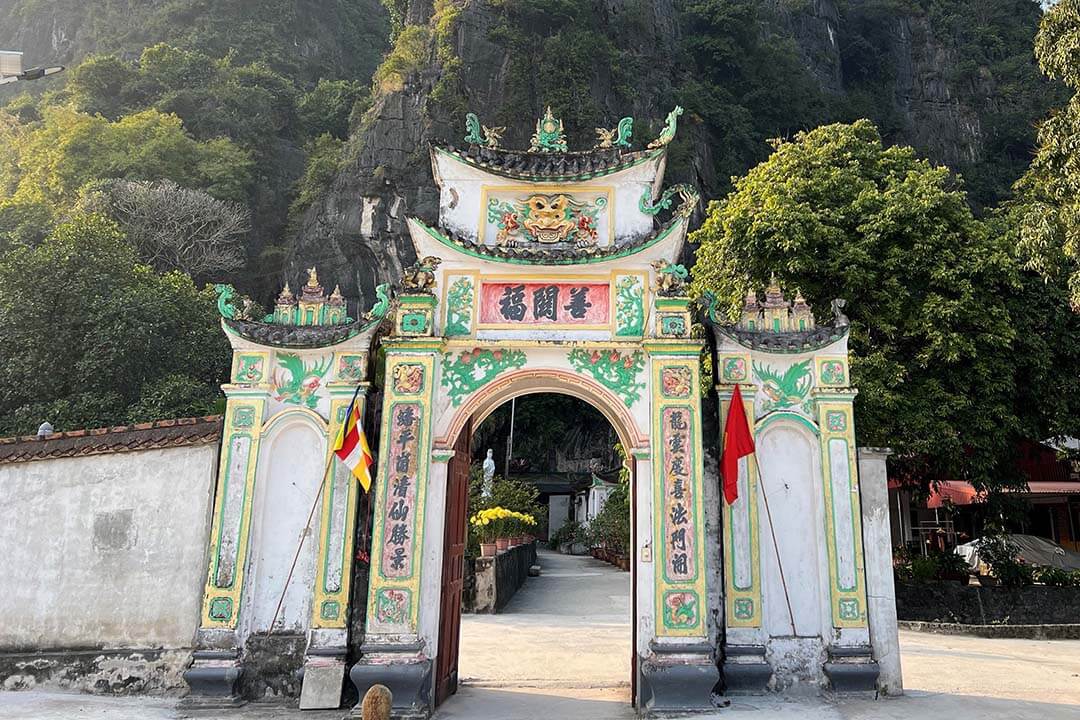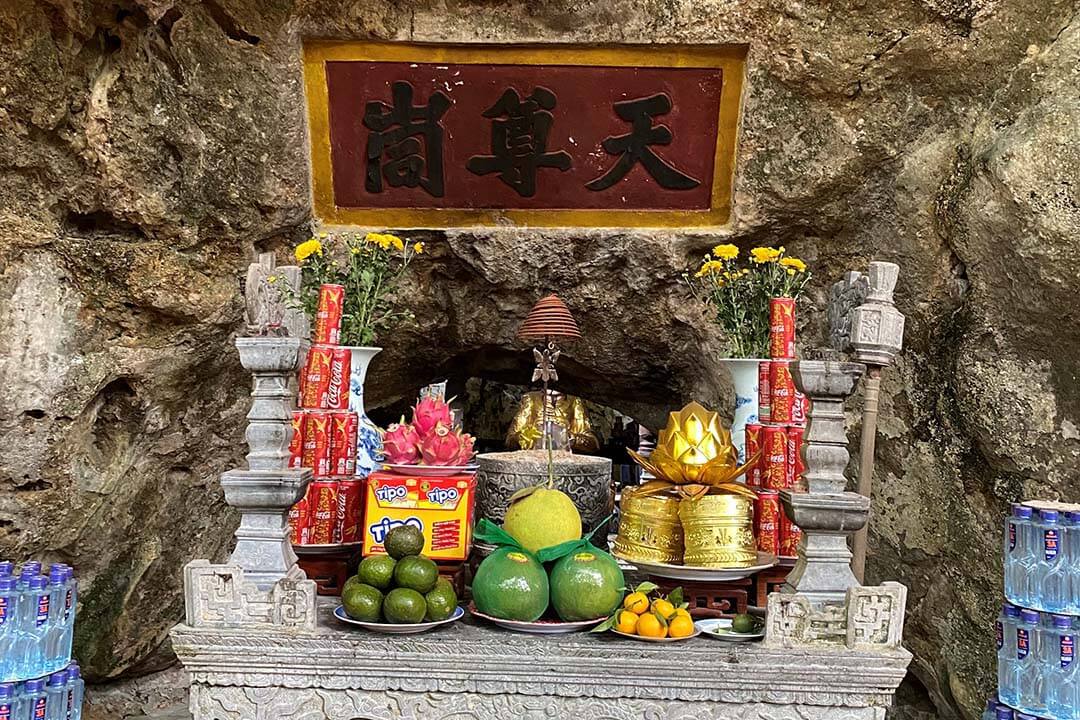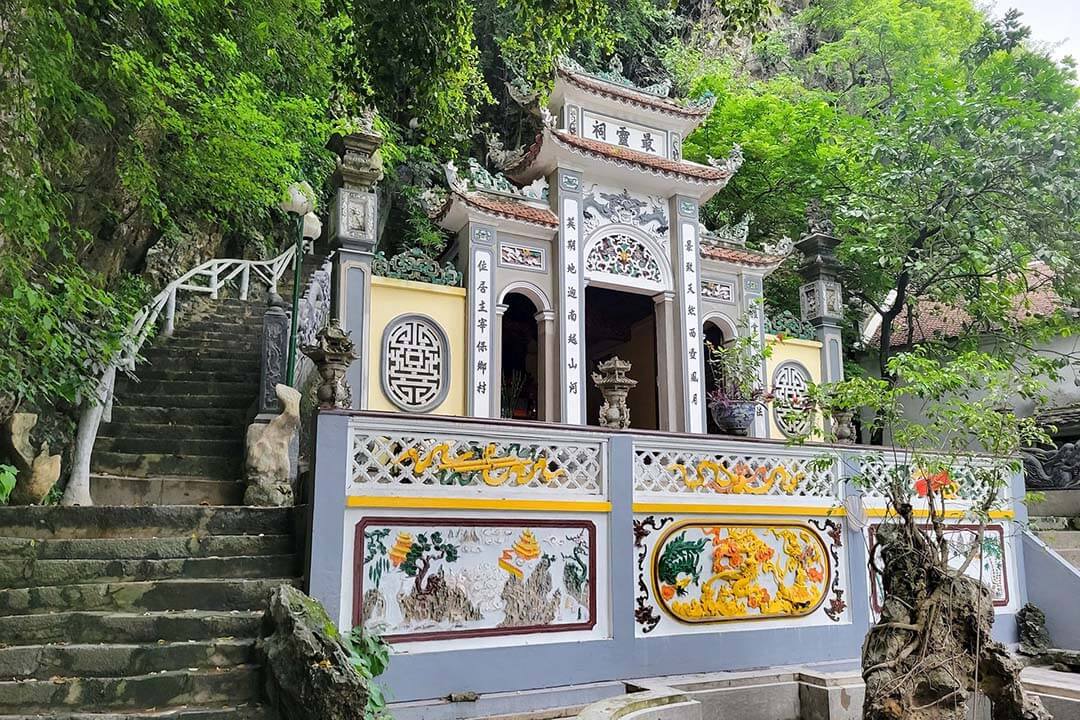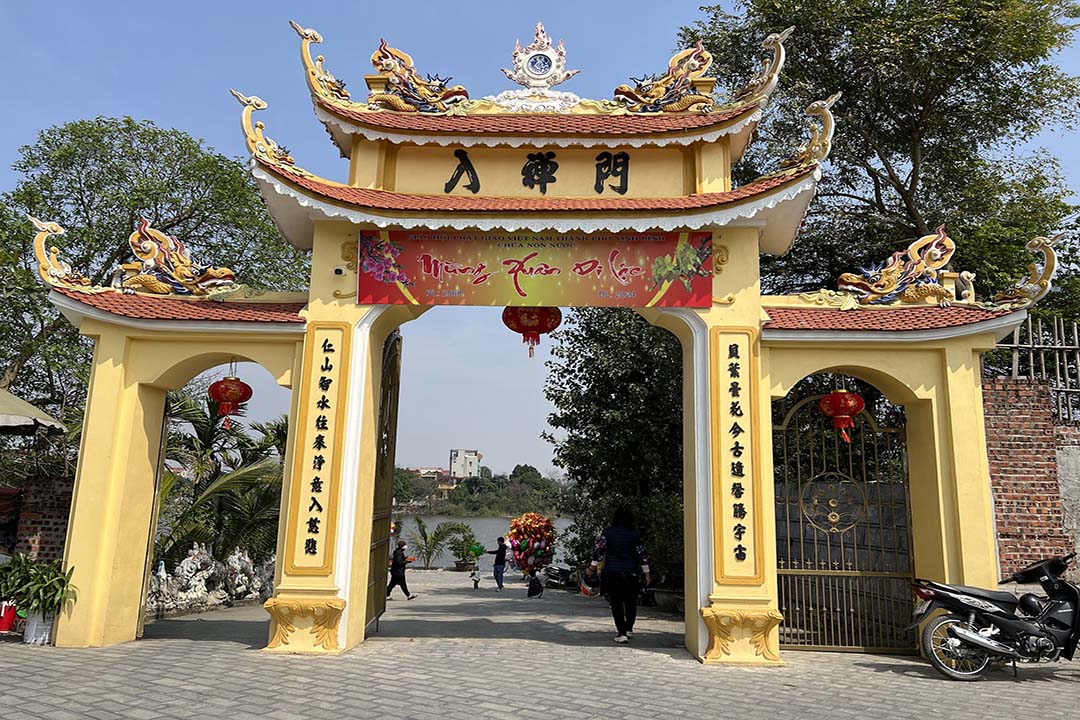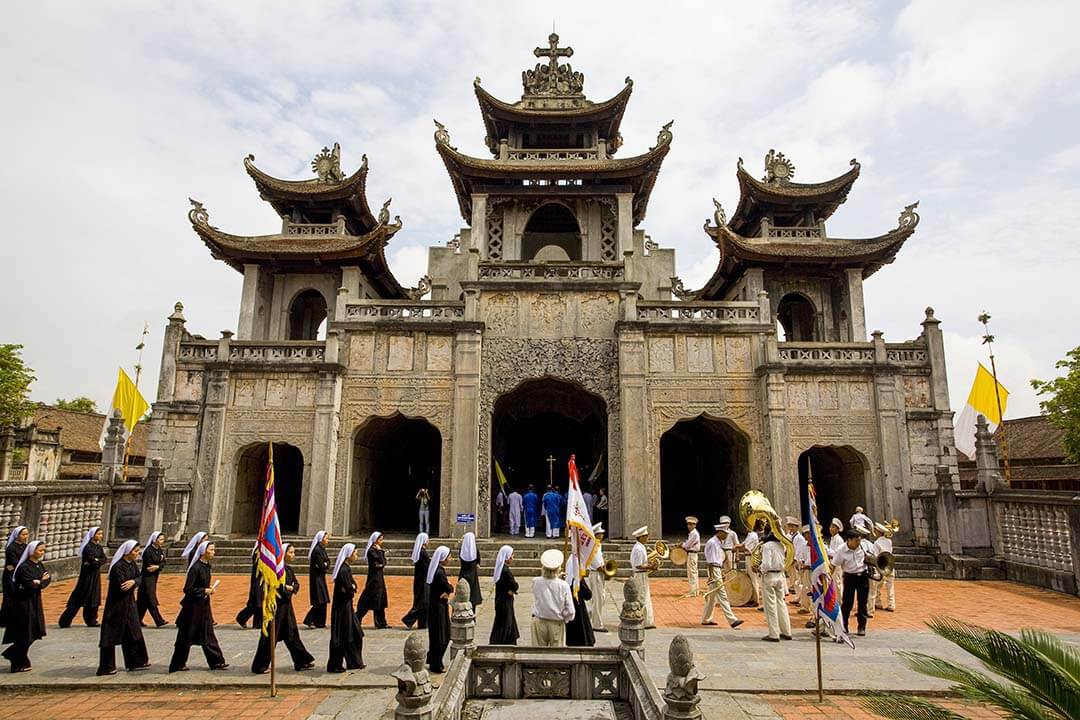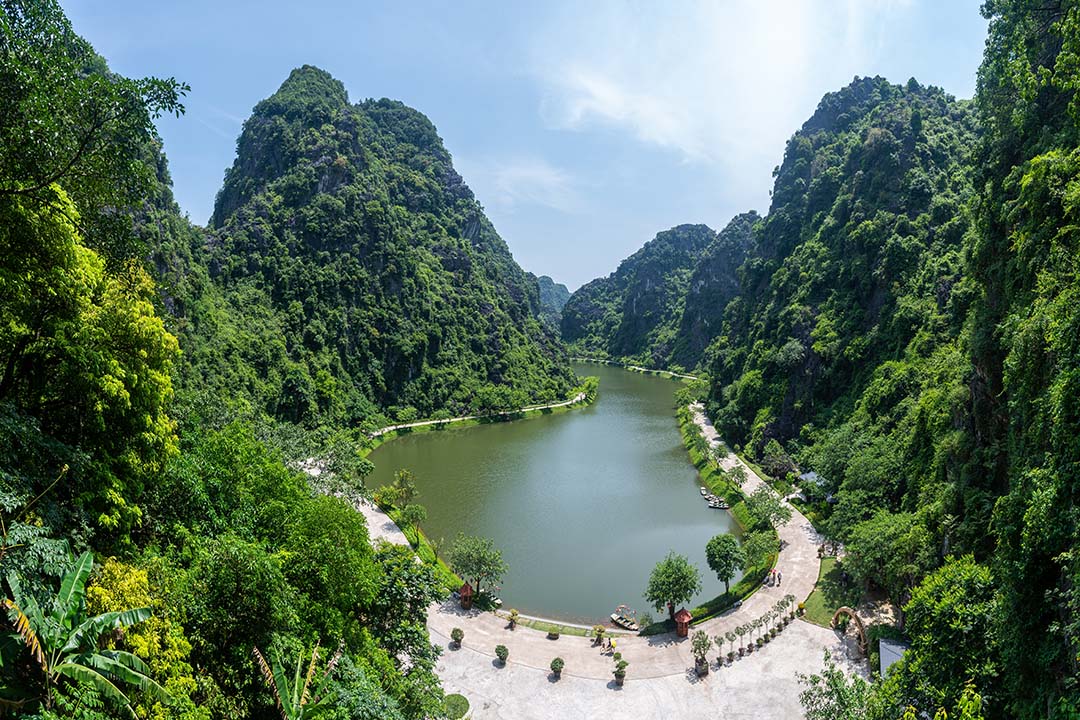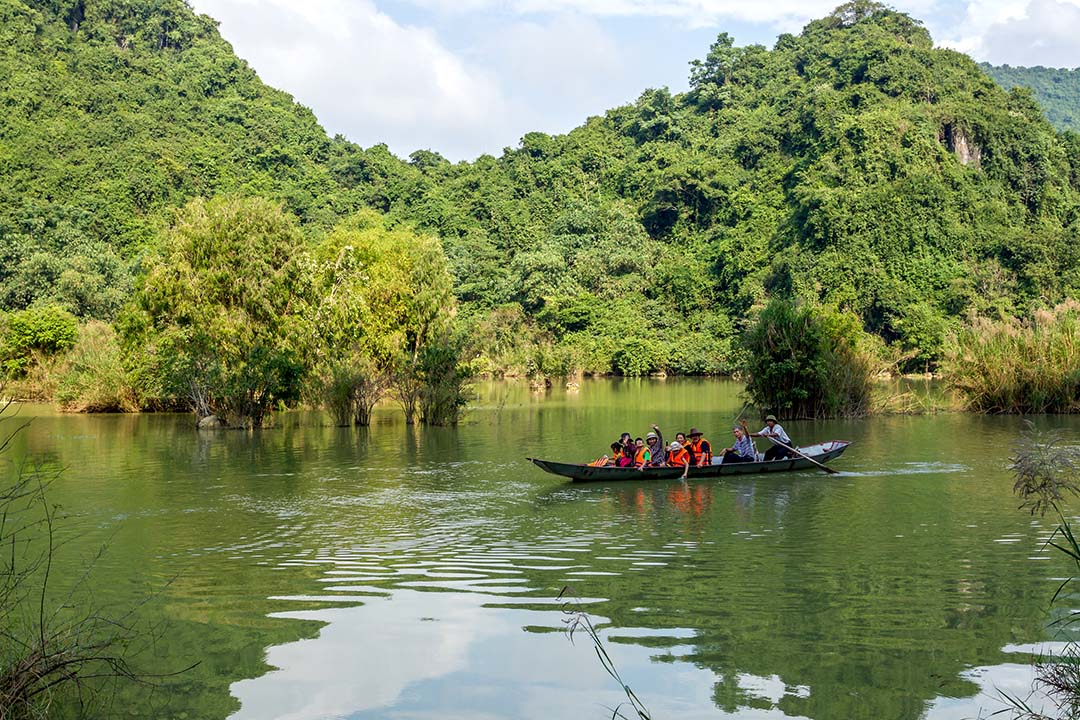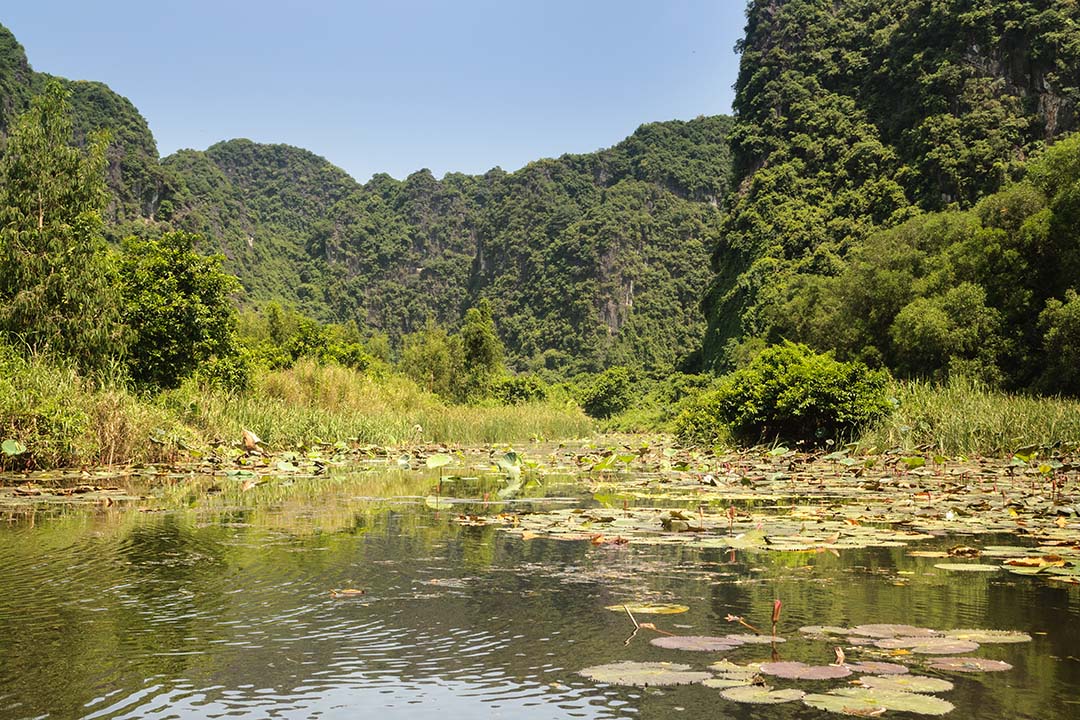Sep - 17 - 2025
Tam Coc – Bich Dong is a famous cave complex in Ninh Hai Commune, Hoa Lu Ward, Ninh Binh Province, about 7km from Ninh Binh City. This area is known as the “Ha Long Bay on land” due to its magnificent limestone mountains and the winding river. The name “Tam Coc” in Vietnamese means “Three Caves”, referring to Hang Ca, Hang Hai, and Hang Ba, which lie along the Ngo Dong River.
This complex is one of the prominent tourist destinations in the Ninh Binh natural heritage system. When visiting, you can admire the harmonious landscape of rivers and mountains and take boat tours through the caves. The rich ecosystem here, from endemic plants to diverse wildlife, adds to the unique charm of Tam Coc.
In 2014, Tam Coc was recognized by UNESCO as part of the Trang An Landscape Complex, highlighting its importance in Vietnam’s natural heritage system. This designation has increased the area’s tourism and conservation value, attracting domestic and international visitors. In this article, we will guide you through all the information about Tam Coc – Bich Dong to help you have the best trip to visit this place.
History of Tam Coc
Tam Coc was formed by the natural process of limestone erosion over millions of years, shaped by the flowing waters of the Ngo Dong River. The combination of water and rock created the three distinct caves that define the area. During the Tran Dynasty (1225–1400), Tam Coc played a significant role as it was part of the Truong Yen base, which was crucial during the resistance against the second Yuan-Mongol invasion in 1285.
Culturally, Tam Coc holds deep spiritual significance for the local population. It has been a site of religious and cultural activities, with festivals and ceremonies held at Thai Vi Temple to honor the Tran kings. Additionally, during times of war, Tam Coc was a strategic point due to its proximity to the plain and the ancient Thien Ly road, enhancing its importance in the region’s military and spiritual history.
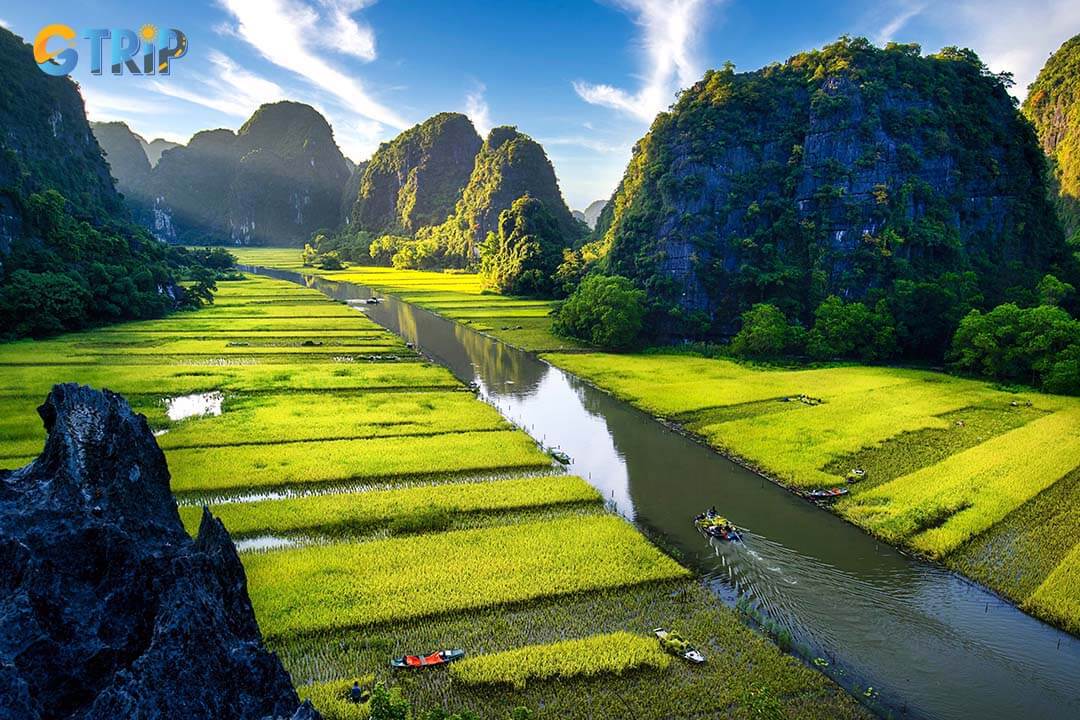
Golden rice season Tam Coc
Unique location and terrain of Tam Coc
The geographical location of Tam Coc is Ninh Hai Commune, part of the larger Trang An Landscape Complex, a UNESCO World Heritage Site, but it has its distinct appeal due to its more rural setting.
Tam Coc is characterized by its limestone karst mountains, which rise steeply from the surrounding rice paddies. These rugged peaks are interspersed with a series of natural caves, most notably Hang Ca, Hang Hai, and Hang Ba, which have been carved by erosion over millennia.
The Ngo Dong River flows through Tam Coc, cutting a winding path through the landscape. You can explore the river by boat, passing through the caves and soaking in the peaceful views of the water, limestone cliffs, and lush green rice fields.
Tam Coc’s less touristy and more rural atmosphere sets it apart from neighbouring Trang An. While Trang An is more developed with larger crowds, Tam Coc offers a quieter, more serene experience with pristine landscapes and closer interaction with local farming life. Its untouched beauty and tranquil environment make it ideal for those seeking a peaceful retreat.
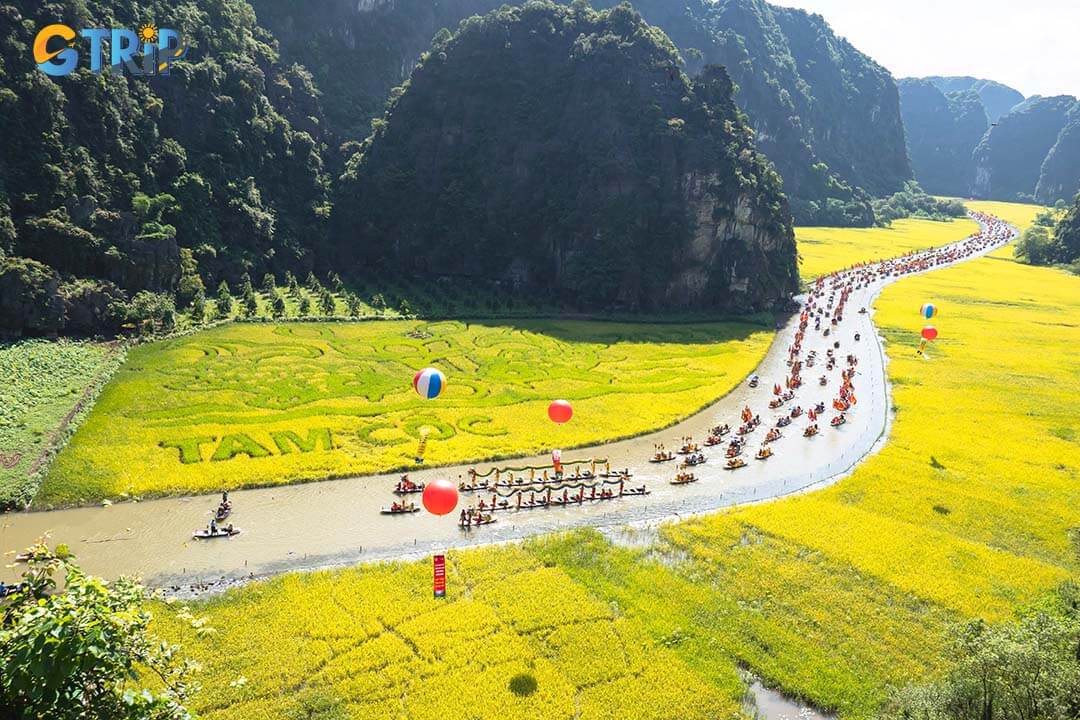
Please take the time to learn and explore the festival in Tam Coc. This is your chance if you want to join the festival on the river
Diverse flora and fauna
Tam Coc is home to a diverse ecosystem with a rich variety of flora and fauna. This area includes unique plant species and is mainly known for its population of rare birds, making it an ideal destination for birdwatching enthusiasts. The lush greenery surrounding the limestone mountains and riverbanks contributes to the biodiversity found in this region.
The beautiful rice fields have become a hallmark of Tam Coc. The best time to visit is typically in May and June, which is particularly special because it coincides with the rice harvest season when the fields turn a golden yellow. This stunning scenery enhances the area’s natural beauty and attracts tourists, providing opportunities for cultural experiences related to rice cultivation.
Conservation efforts are crucial in Tam Coc to protect its delicate ecosystem. Initiatives aim to preserve the habitats of rare species and promote sustainable tourism practices, ensuring that the natural beauty and ecological health of Tam Coc remain intact for future generations. These efforts highlight the importance of balancing tourism with environmental protection in this remarkable landscape.
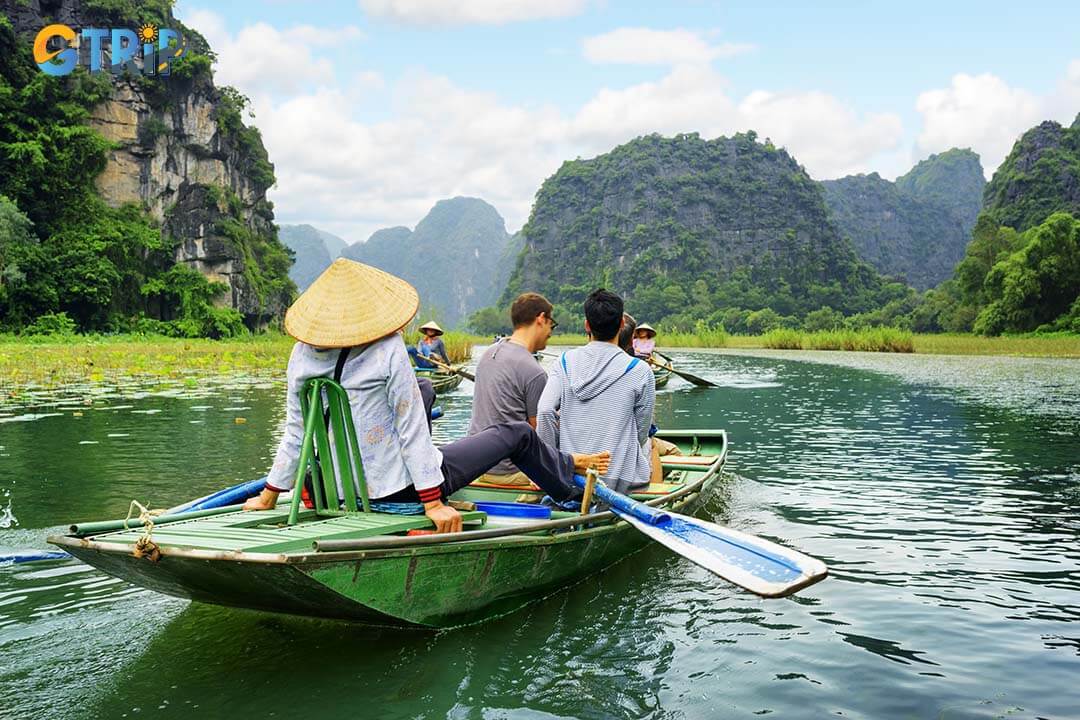
Tourists are sitting on a boat on the Ngo Dong River and the boatman is very skillful in rowing the boat with her feet. This is a very interesting activity and you must definitely try it when you come to Ninh Binh
Things to do in Tam Coc
Tam Coc offers a variety of activities that allow them to immerse themselves in the stunning natural scenery and rich local culture.
Experience the natural beauty with boat trips on Ngo Dong River
When visiting Tam Coc, you must experience the boat trips on the Ngo Dong River. This journey offers a fresh perspective as you explore Tam Coc. The towering limestone mountains and lush green rice fields create a serene landscape, providing a truly pleasant experience. The boat rowers are enthusiastic and highly professional. They skillfully row the boats with their feet and navigate expertly, which impressed us.
Visiting the caves
Tam Coc features many captivating caves, each with its unique charm. Hang Ca, the largest of the three, stands out with its mystical stalactites and stalagmites, creating an enchanting atmosphere. Hang Hai offers a more intimate experience, where you can admire intricate rock formations up close. Hang Ba, the smallest cave, is famous for its vibrant colors and rich folklore, adding cultural significance to the visit. Exploring these caves helps you understand the area’s geological history and provides memorable adventures.
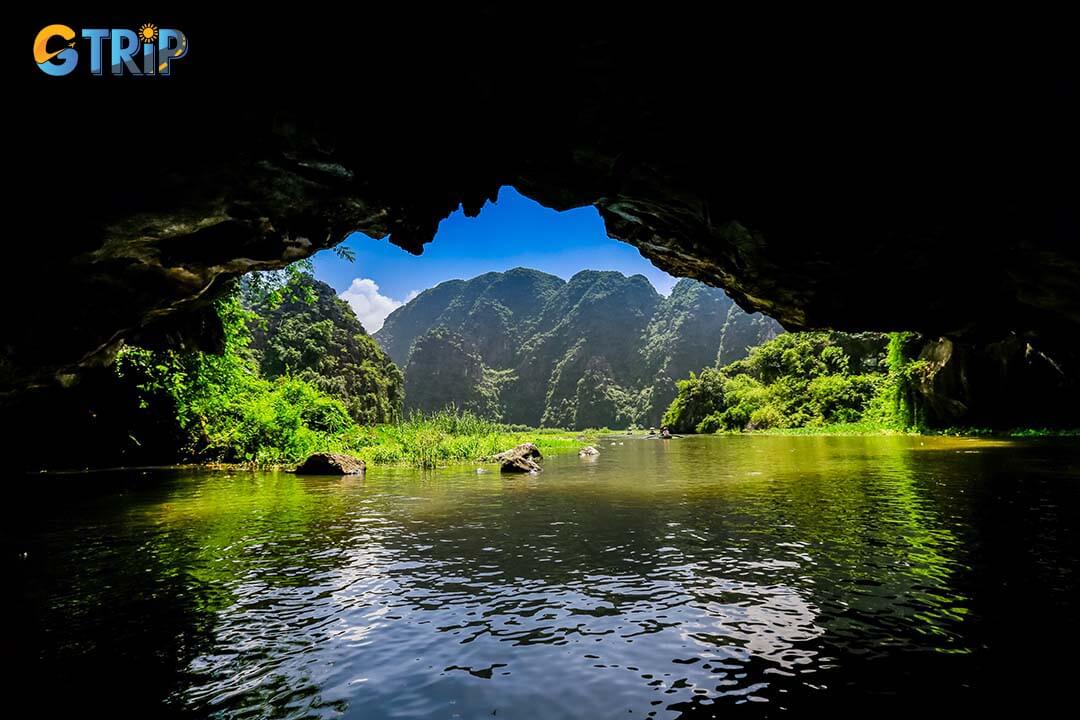
Tam Coc Cave
Exciting attractions in Tam Coc – Bich Dong
Tam Coc is a complex, and there are many unique attractions inside. Below are 8 specific spots you can visit because they bring you many experiences during your visit to the “Ha Long on land”.
1. Bich Dong Pagoda
Bich Dong Pagoda is known for “Bach Ngoc Thach Son Dong”, was built in 1428 (the 15th century) during the Later Le Dynasty. This historical site is located on the hillside of a limestone mountain, offering stunning views of the surrounding landscape. The pagoda complex consists of three main temples: the Upper Pagoda, the Middle Pagoda, and the Lower Pagoda.
Bich Dong Pagoda is famous for its tranquil atmosphere and exquisite architecture, characterized by intricate ironwood carvings and beautifully decorated altars. Nestled among lush greenery, it enhances the peacefulness of the environment, making it a popular destination for pilgrims and tourists. We had the opportunity to visit the pagoda and admire its natural beauty, seek tranquility in its serene surroundings, and enjoy the stunning vistas that reflect the harmonious blend of nature and spirituality at the site.
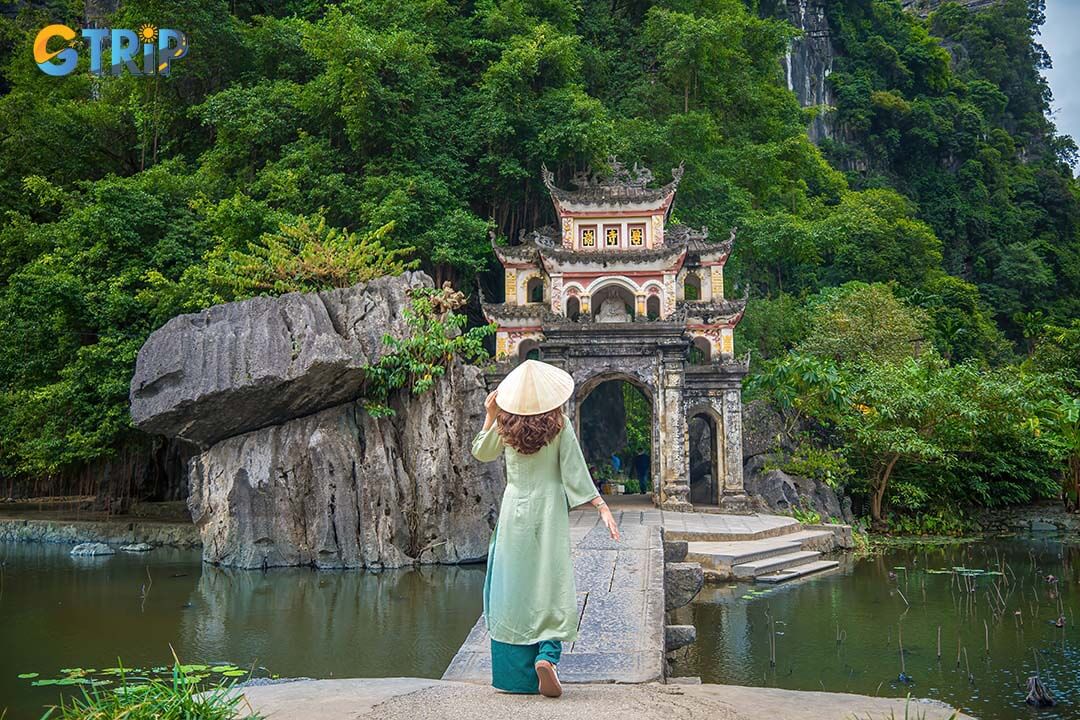
The girl in front of Bich Dong Pagoda
2. Linh Coc Pagoda
Linh Coc Pagoda, also known as Linh Coc Temple, was built in the 13th century (in 1258) during the Tran Dynasty and is nestled among the picturesque limestone mountains of Ninh Binh. As an important religious center, the pagoda is dedicated to worshipping Buddha and various deities, attracting locals and tourists. Featuring traditional Vietnamese architecture, the pagoda is distinguished by its intricately carved wooden statues and distinctive decorative patterns.
The tranquil atmosphere of the pagoda is enhanced by the natural beauty surrounding it, including lush greenery and serene mountain vistas. You can explore the peaceful gardens, admire the views from the temple grounds, and engage in spiritual practices that promote mindfulness and reflection. Linh Coc Pagoda is not only a cultural destination but also a place that offers profound spiritual experiences, making it ideal for those seeking a connection with nature and exploring Vietnam’s cultural heritage.
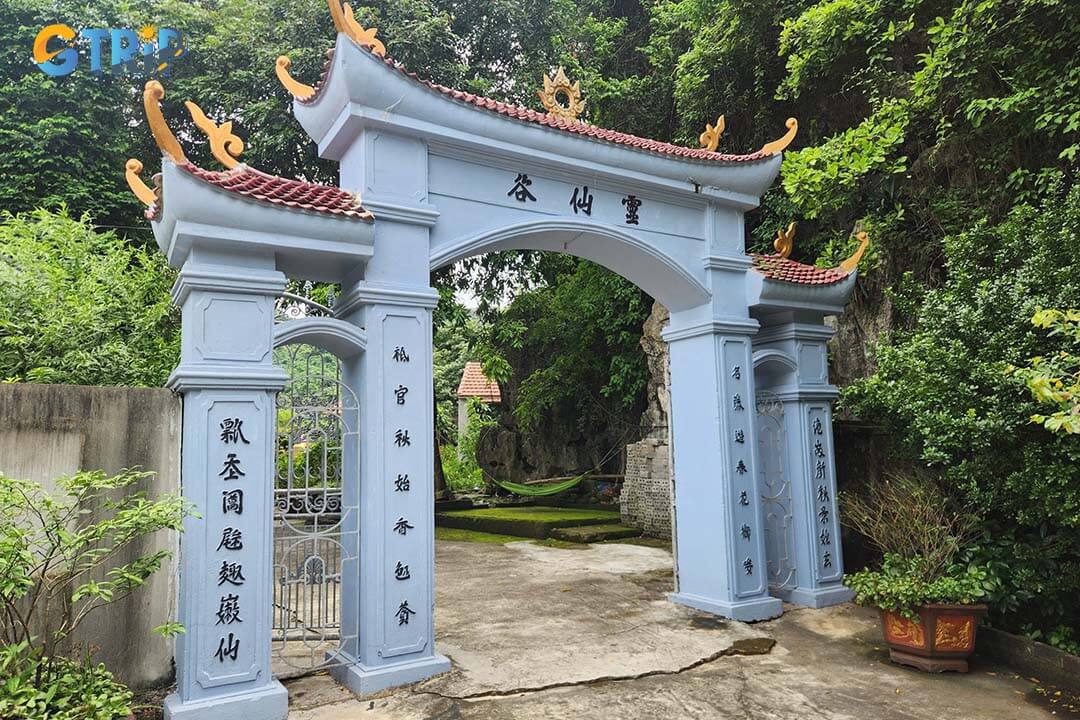
Gate of Linh Coc Pagoda
3. Thai Vi Temple
Thai Vi Temple was built in 1258 (the 13th century) during the Tran Dynasty by King Tran Thai Tong to honor the Tran kings and their contributions to the nation. The temple is amidst stunning natural scenery, surrounded by lush rice fields and limestone mountains, creating a tranquil spiritual atmosphere.
The architecture of Thai Vi Temple showcases traditional Vietnamese design, featuring intricately carved wooden sculptures and distinctive decorative patterns that reflect the artistry of the period. The temple’s historical significance and serene environment make it a popular destination for pilgrims and tourists. The temple grounds often host various cultural and religious events, offering insights into local customs and traditions.
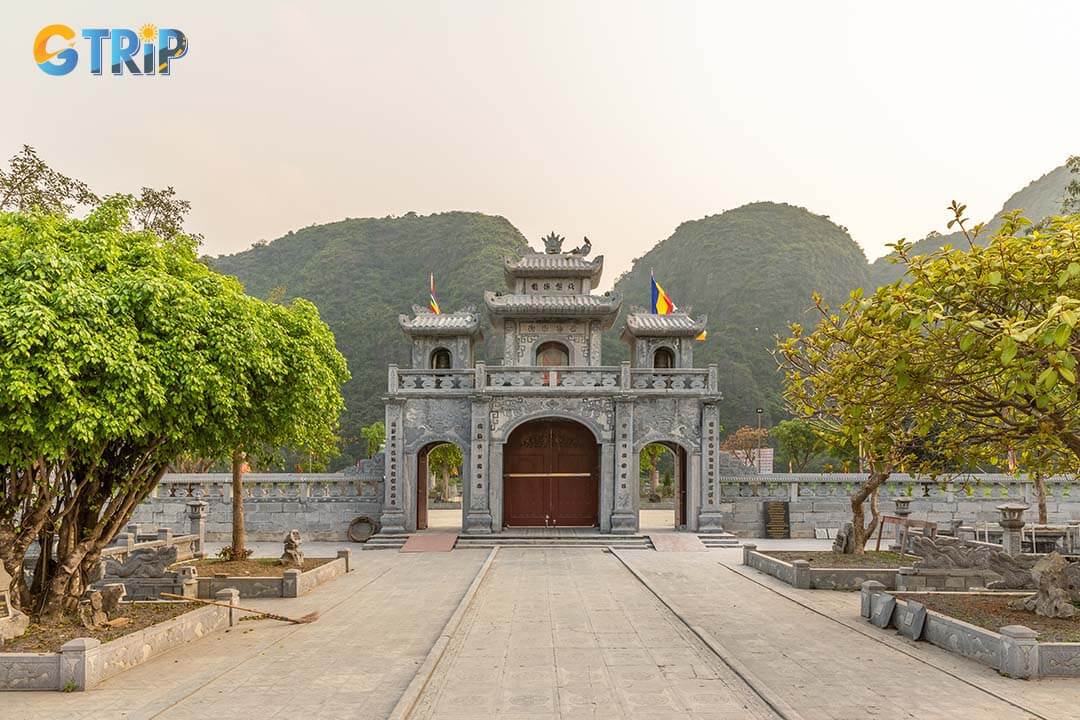
Gate of Thai Vi Temple
4. Thung Nham
Thung Nham is known for its breathtaking landscapes and diverse ecosystem. The area has a rich history, once serving as a base for the Tran Dynasty during their resistance against foreign invaders in the 13th century. Today, it is recognized as an ecological tourism destination, attracting visitors with its lush greenery, limestone mountains, and serene waterways.
Thung Nham features a variety of attractions, including the stunning Thung Nham Bird Park, where you can observe numerous bird species in their natural habitat. The park is home to many rare birds, making it a paradise for birdwatchers and nature enthusiasts. Additionally, the area offers opportunities for boating, allowing guests to glide through the tranquil waters and admire the surrounding limestone formations and rich flora.
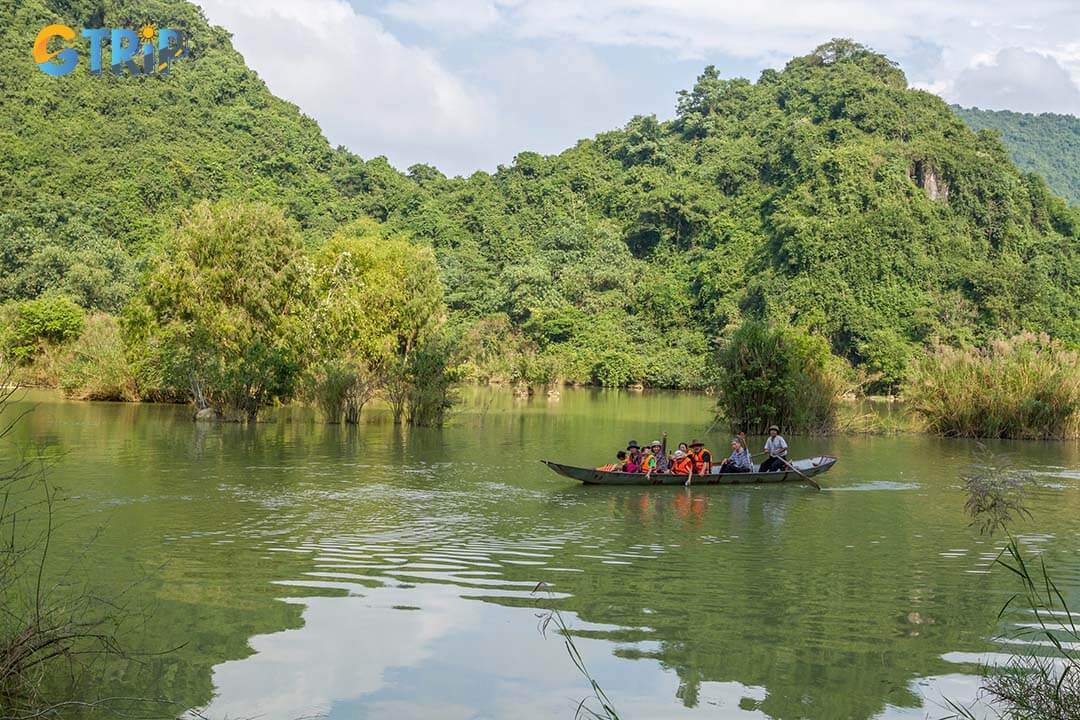
Boat trip in Thung Nham
5. Co Vien Lau
Co Vien Lau is a unique cultural and architectural destination that reflects the traditional lifestyle of the Northern Vietnamese people. Officially established in the 1990s, this area simulates the image of a conventional Northern village, showcasing the region’s rich cultural heritage and rural architecture. The name “Co Vien Lau” translates to “Ancient Garden House”, and the area is designed to create a tranquil space reminiscent of the past.
Co Vien Lau features many traditional wooden houses, gardens, and decorative elements that embody the essence of rural life. You can explore various structures, including traditional-style houses, tea houses, and beautiful gardens filled with native flora. This area often hosts numerous cultural events and activities, allowing you to engage in traditional Vietnamese customs, such as tea ceremonies and folk games.
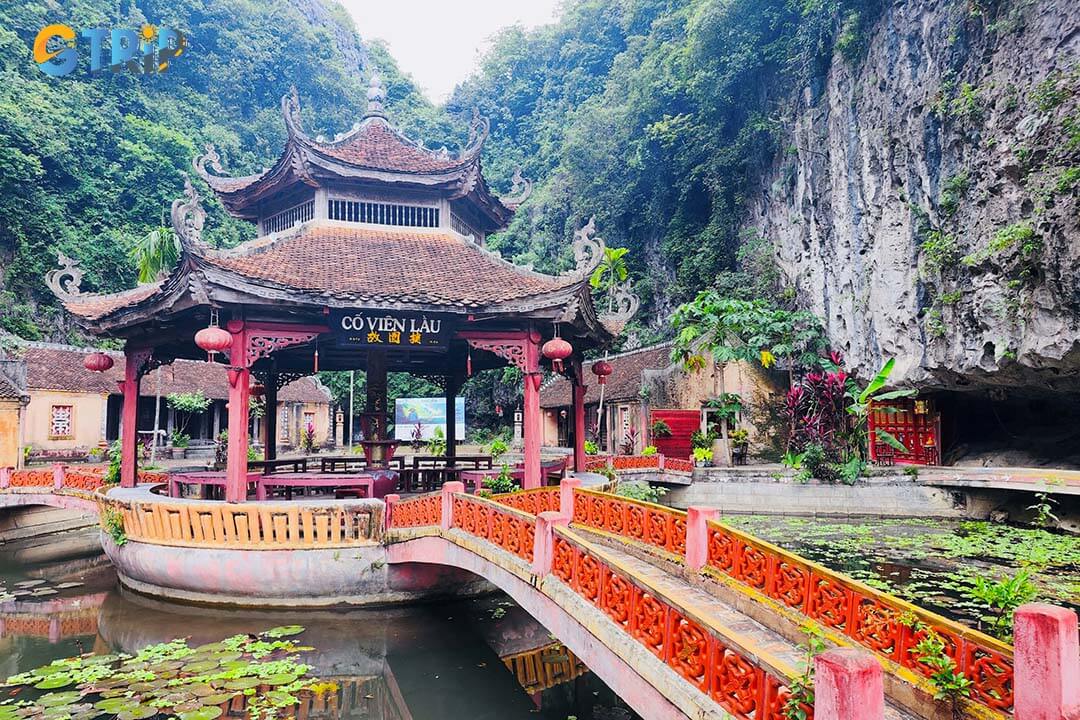
A view of Co Vien Lau
6. Thung Nang
Thung Nang is a peaceful valley renowned for its pristine and tranquil natural beauty. The name “Thung Nang” means “Sunny Valley,” reflecting the area’s bright and serene atmosphere. Thanks to its calm rivers, majestic limestone mountains, and lush green surroundings, it has become an increasingly popular destination for eco-tourism enthusiasts.
Visiting Thung Nang can enjoy boat trips along the tranquil rivers, weaving through rice fields and scenic rock formations. The area also features several small caves, adding an adventurous element to the journey. Thung Nang offers a peaceful and secluded experience, making it an ideal choice for those seeking tranquility and a deeper connection with nature.
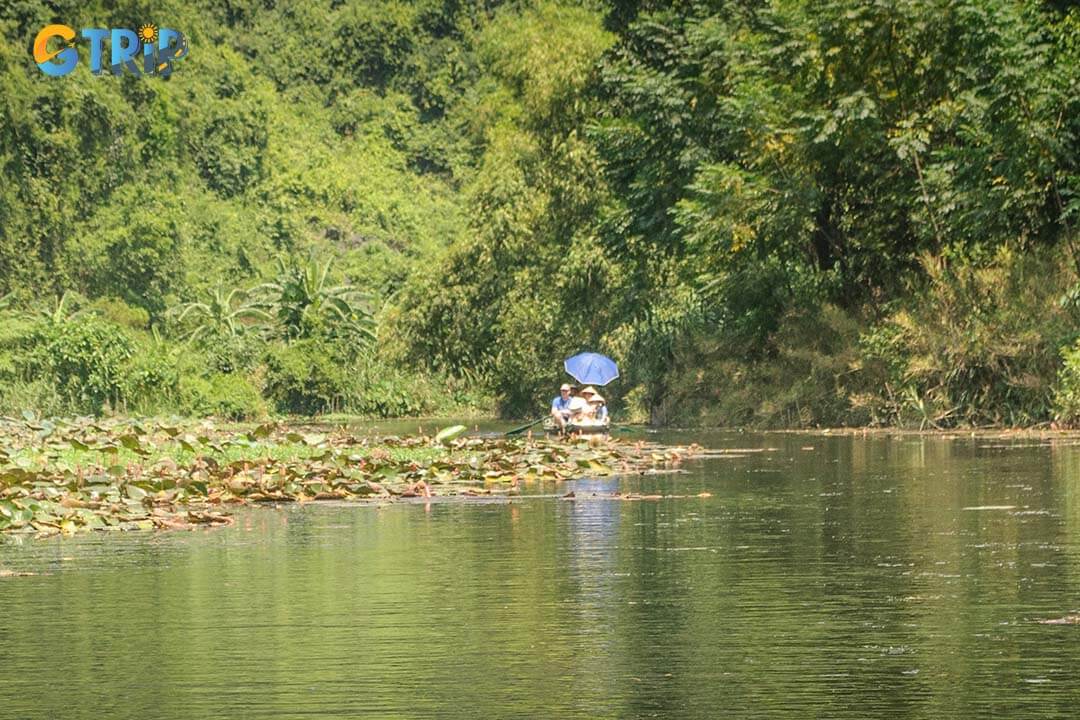
Tourists are excited to experience boat trip in Thung Nang
Tam Coc travel tips
Prepare for your visit to Tam Coc with essential tips for a smooth experience. From packing sunscreen and cash to advice on avoiding crowds and respecting local customs, these tips will help you make the most of your trip.
- Wear comfortable shoes: The area involves some walking and hiking, especially if you plan to visit caves or pagodas.
- Check the weather forecast: Tam Coc can get hot in summer or rainy in the monsoon season, so it’s important to plan accordingly.
- Bring a camera: The scenic landscape is incredibly photogenic, especially during the ripe rice season when the fields turn golden.
- Consider renting a bicycle: Biking around the peaceful countryside is a great way to explore the area at your own pace.
- Be prepared for boat ride costs: Boat rides are a key attraction, so check the latest prices beforehand and prepare for extra fees during the tour.

A girl sits on the boat as it drifts along the Ngo Dong River
FAQs for Tam Coc – Bich Dong
Tam Coc – Bich Dong is a must-visit spot in Ninh Binh, known for its peaceful landscapes, boat rides, and limestone karsts. Here are some quick answers to help plan your trip.
Where is the best time to visit Tam Coc?
The best time to visit Tam Coc is during the ripe rice season (late May to early June), when the fields turn golden, creating a stunning landscape. Another beautiful time is autumn (September to November), when the weather in Ninh Binh is cooler, and the scenery remains picturesque.
How do you get to Tam Coc?
You can reach Tam Coc by taking a direct bus from Hanoi or hiring a motorbike or taxi from Ninh Binh City. Renting a bike is also a great option, allowing you to explore the area at your own pace and enjoy the rural charm.
How is Tam Coc different from Trang An?
Tam Coc offers a quieter, more rural experience compared to the more tourist-heavy Trang An. While Trang An is more developed and organized with multiple boat routes, Tam Coc is known for its peaceful, scenic boat rides through rice fields and towering limestone karsts. Nearby attractions like Bich Dong Pagoda, Thung Nang, and Thien Ha Cave can be easily linked to create a complete tour.
Do I need to hire a tour guide when visiting Tam Coc?
Hiring a tour guide is not required, but it can greatly enhance your experience. A knowledgeable guide can offer insights into the area’s history, geology, and culture, making your visit more enriching.
What can you expect during a visit to Tam Coc during the rainy season?
During the rainy season (May to September), frequent rain showers may make boat trips challenging. However, the landscape is lush and vibrant during this time, and the misty atmosphere over the limestone karsts can create a mystical experience. Just be prepared for some possible weather-related delays.
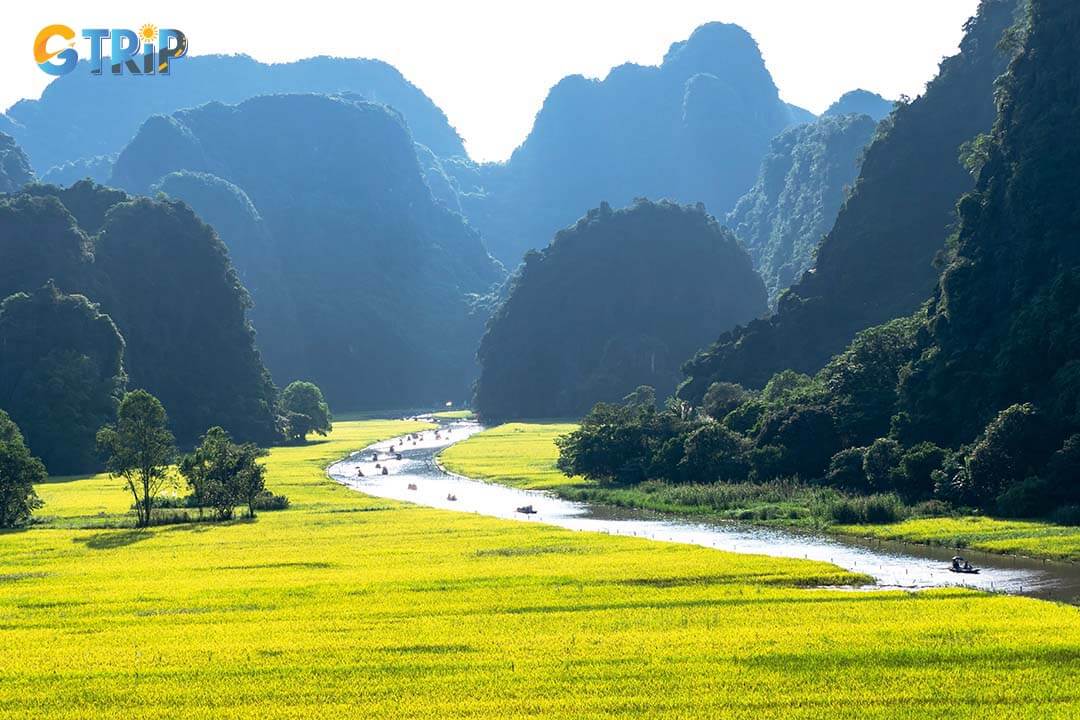
Tam Coc with a panoramic view from above with golden rice fields and stunning limestone mountains. A beautiful scene that you must take photos when coming to Ninh Binh

